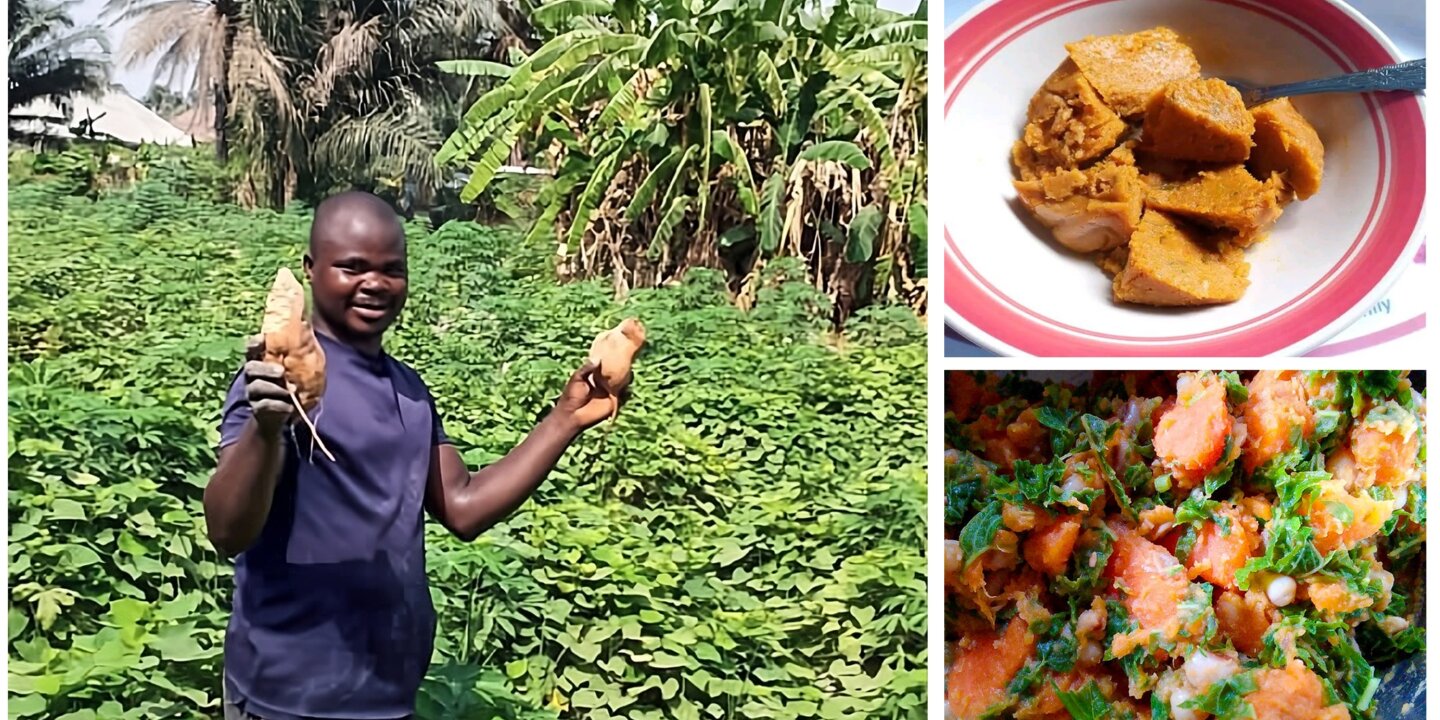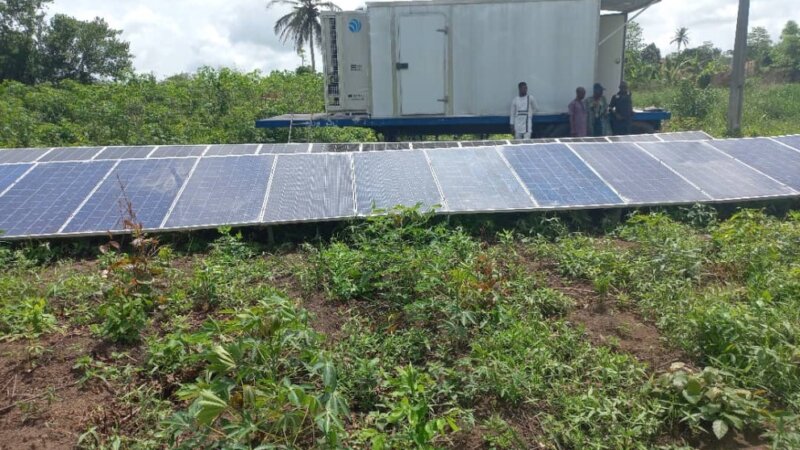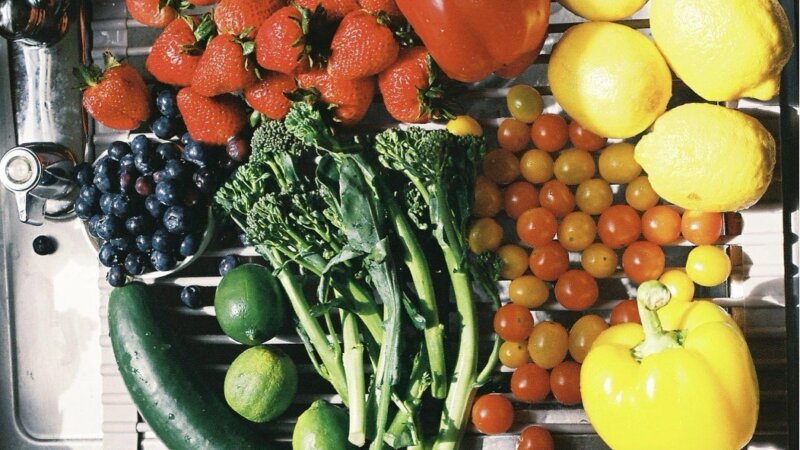Orange-Fleshed Sweet Potato: Battling Malnutrition with Smarter Food

Mr. Osough in his OFSP farm in Makurdi. Common meal moi-moi prepared from OFSP root (top-right) and salad made with OFSP root and leaves (bottom-right).
Faden Lachang Kemven is project manager at GAIN, Nigeria. He leads the biofortification workstream of the Strengthening Nutrition in Priority Staples (SNiPS) project. Participants of the 2025 food systems e-course, Faden explains in this blog how orange-fleshed sweet potato (OFSP) is improving nutrition and incomes and how a multi-stakeholder approach can accelerate food systems transformation.
While it may look like any other sweet potato, the orange-fleshed sweet potato (OFSP) is rich in Vitamin A and is quietly changing the way people eat, farm, and think about nutrition in Benue State, Nigeria.
As part of the Strengthening Nutrition in Priority Staples (SNiPS) project at GAIN-Nigeria, we’re promoting biofortified crops like OFSP to improve access to safe, nutritious food for vulnerable households. OFSP was selected for Benue because sweet potatoes are already familiar in the region – but unlike the traditional white-fleshed variety, OFSP is orange due to its high beta-carotene content. Consuming it helps address Vitamin A deficiency, a serious public health issue in Nigeria.
I manage the biofortification workstream of SNiPS, which works directly with farmers to support increased production and consumption of biofortified crops. OFSP matures in just two to three months and is suitable for both roots and leaves, offering quick returns for farmers and better nutrition for their families. We’ve also trained households to prepare various OFSP-based meals – flour, moi-moi, chin-chin snacks, juice – both for home use and income generation.
Biofortified crops are relatively new in the Nigerian food system, and OFSP was not widely known in Benue communities when we introduced it. Developed by the National Root Crops Research Institute in collaboration with the International Potato Centre (CIP), OFSP initially faced resistance. Some believed it was only for diabetic patients, while others were sceptical of its orange colour, unfamiliar taste, or softer texture. But through awareness campaigns with partners such as Farm Radio International and the Centre for Communication and Social Impact, we highlighted its nutritional and income-generating potential. Today, acceptance is strong, and OFSP is becoming part of daily meals and farm plans across rural Benue.
Through our multi-stakeholder approach, we’ve engaged farmers, government partners at all levels, research institutes like IITA, development organisations like Sasakawa Africa Association, youth groups, and women in agriculture to support OFSP adoption. The food systems e-course helped me better understand this systems-level approach – especially how stakeholder analysis can identify power imbalances and overlooked actors. Collaboration is essential to designing and implementing interventions that are locally grounded, scalable, and sustainable.
What began as a small intervention in 2022 is steadily growing – like a mustard seed becoming a strong tree. Take Osough Sughnen (in the picture), for example, from the Tigi community in Makurdi. A participant in our programme, he proudly identifies as a biofortification farmer – cultivating OFSP and Vitamin A cassava. Today, he grows these crops both for family nutrition and income generation. His OFSP farming now brings in an average of 2.5 million Naira (~USD 1,660) annually from the sale of roots and vines.
Many are now cultivating OFSP regularly, consuming it at home, and building small businesses around it. We’re also seeing more entrepreneurs use OFSP as a base ingredient for new products, proving that biofortified crops can be both nutritious and marketable.
OFSP is not just a new crop on the farm. It’s a symbol of what’s possible when communities are empowered, partnerships are inclusive, and food systems are shaped by local needs.
At GAIN, we believe food system transformation happens when nutrition, tradition, and innovation come together. OFSP in Benue is a clear example of that – and there’s still so much more potential to unlock.
Author

Faden Lachang Kemven
e-course participant




